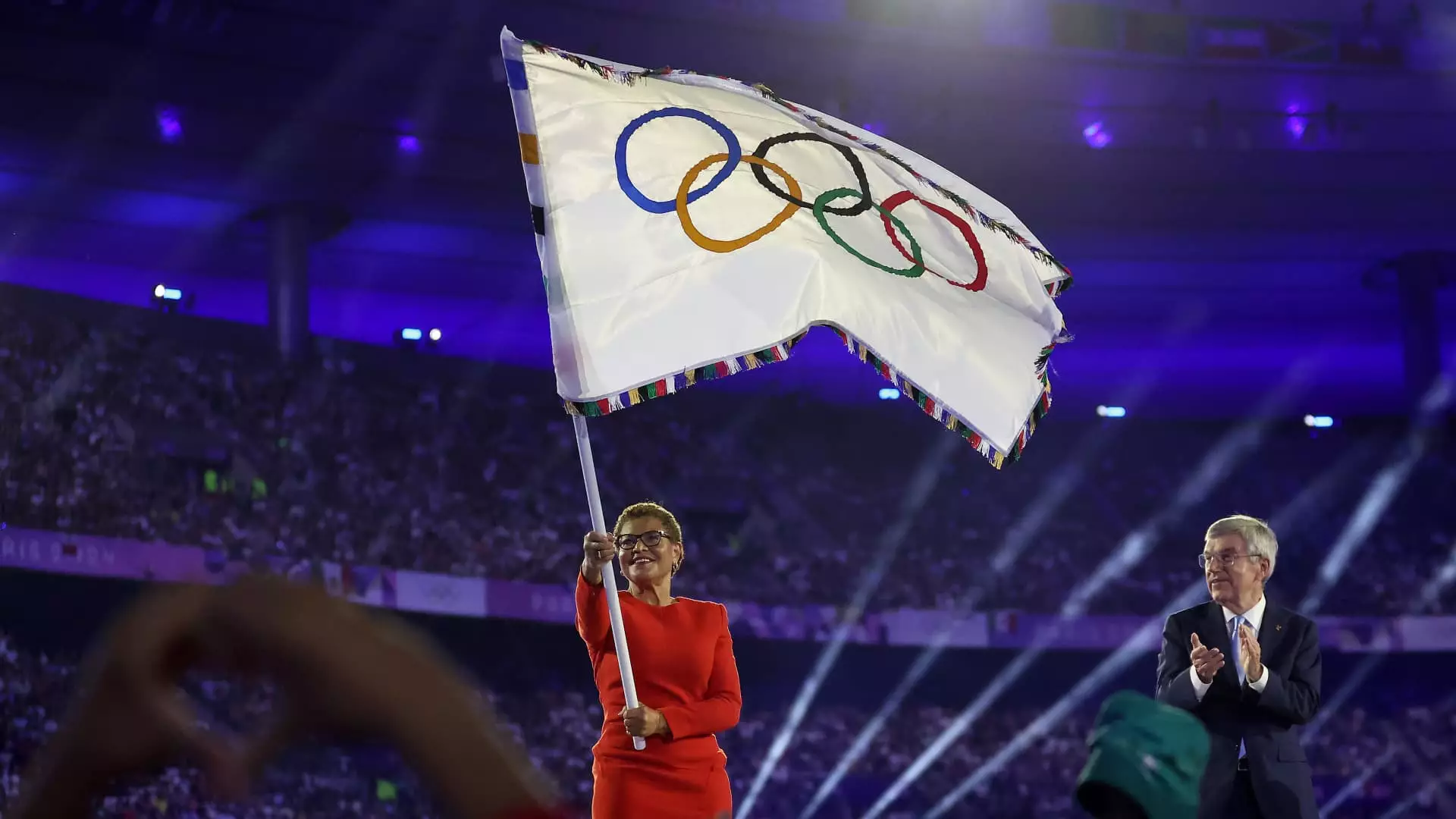The excitement ignited by the 2024 Olympics and Paralympics held in Paris has cast a long shadow over the upcoming Summer Games scheduled for 2028 in Los Angeles. As global attention shifts to the City of Angels, stakeholders are gearing up for an event that promises to be both transformative and challenging. With a rich heritage in hosting the Olympics, demonstrated by the successful 1984 Games, Los Angeles is poised to leverage its experience to deliver an unforgettable sporting spectacle while addressing the myriad logistical challenges that accompany such a monumental event.
Los Angeles Mayor Karen Bass articulated her concerns regarding the city’s preparedness during a recent CNBC event, emphasizing the need for comprehensive planning to accommodate the influx of visitors. A significant aspect of her vision revolves around transportation. Unlike the transportation model of previous Olympic host cities, Bass envisions a scenario where “no cars to the venues” becomes not just an idealistic statement, but a concrete reality.
Achieving this ambitious goal requires heavy investment in the city’s existing public transportation infrastructure, including enhancements to bus and subway services. This initiative is not merely a logistical necessity for the Games; it represents a potential long-term redesign of the city’s travel habits that could leave a lasting legacy beyond August 2028. Collaboration with neighboring cities to optimize transportation resources and lend support during the event will be paramount to success.
In tandem with transportation improvements, Bass also raised the pressing issue of street homelessness, a challenge that has plagued Los Angeles for years. The mayor’s insistence on developing over 18,000 new housing units underscores a broader urban strategy aimed not only at beautifying the city for the Olympics but also at addressing systemic issues within its fabric. The Games present a unique opportunity to shine a national spotlight on homelessness, prompting necessary measures that could lead to lasting change.
Moreover, Bass’s pledge to collaborate with local businesses on altering work schedules highlights a proactive approach toward managing traffic congestion during the Games. By encouraging remote work and nighttime deliveries, her administration hopes to alleviate the pressures that major events typically impose on urban environments.
As LA 2028 President Casey Wasserman reflects on the Paris Games, he recognizes the emotional and cultural ties that draw people to the Olympics. The takeaway from Paris is that when executed well, the Games can evoke a deep sense of community and excitement. Los Angeles aims to capture this spirit while presenting its unique landscape—there will be no construction of new permanent venues, marking a shift in Olympic strategy and a potential challenge in creatively engaging the city’s cultural landmarks.
The Hollywood Sign, an emblem of Los Angeles, exemplifies this challenge. Its iconic status poses both an obstacle and an opportunity. While Wasserman acknowledges complications in adapting the sign for the Olympics, the image of blending such a landmark with Olympic symbolism is tantalizing—an abstract idea that attracts both excitement and skepticism.
With actress Jessica Alba on board as a member of the Los Angeles 2028 directors, there is a strong emphasis on showcasing the multifaceted character of the city. Alba expressed a desire for Los Angeles to emerge as a “main character,” a living representation of the Olympics’ spirit. From Hollywood’s glitz to culinary diversity and dynamic fashion, the Games are positioned not only as a sporting event but as a global stage for cultural exchange.
The prospect of other-worldly celebrations, street festivals, and local engagements paints a picture of an Olympics unlike any before. The intention is clear: the 2028 Games will not simply be an event where athletes compete, but a transformative festival embracing the best of what Los Angeles has to offer.
As preparations continue, the pressure mounts for Los Angeles to showcase its ability to host the Olympics while addressing pressing urban concerns. There is a palpable optimism that the 2028 Games will not only enhance Los Angeles’s infrastructure and cultural identity but also serve as a catalyst for necessary change within the city. While the challenges are substantial, the opportunities for showcasing the dynamism of Los Angeles on a global stage offer a thrilling prospect for the future.


Leave a Reply